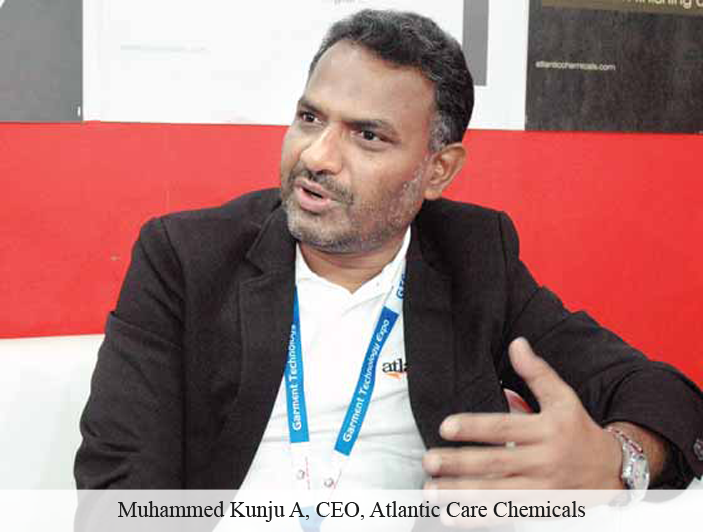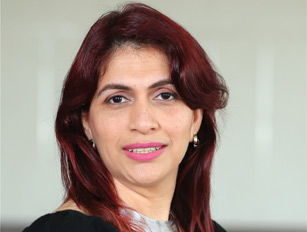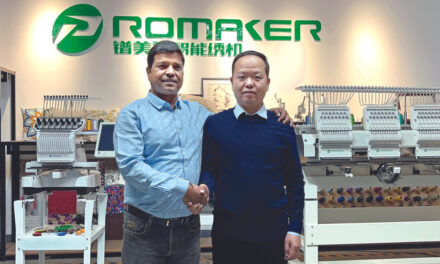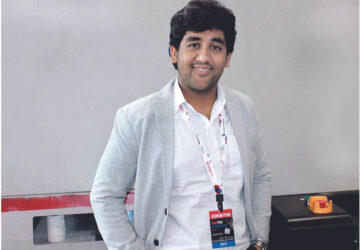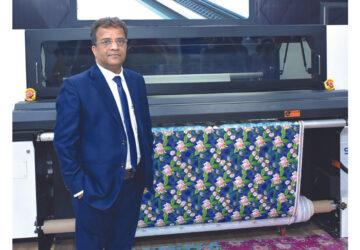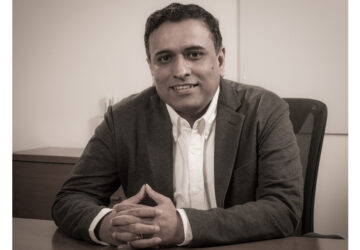Atlantic Care Chemicals, as a global speciality chemical company strives to be at the forefront, for more sustainable products, as well as to achieve sustainability in its application and process. Combining its unique competency in chemical engineering with molecular biology, Atlantic offers innovative solutions to create sustainable value to its customers, employees and stake holders. Its presence has grown from a local business unit in United Arab Emirates, into the global marketwith 30 representative offices across the world. The company has a world-class Research and Development (R&D) laboratory in Mississauga, Canada, and Manufacturing facilities with cutting edge technology in India. In an exclusive interview with Apparel Views, Muhammed Kunju A, CEO of Atlantic Care Chemicals shares more about his company and its further plans for the Indian market.
Could you please give us a brief intro about your company?
Atlantic Care Chemicals focuses in the development, production and marketing of chemicals for the fabric and garment processing. It serves the textile and garment units in Indian subcontinent, South East Asia, Middle east and Africa. The organisation is committed to bring in innovative products which are designed to reduce the usage of water, energy, time and harsh chemicals in the processing. We constantly strive hard to attain our goal of ‘Go Green’ by engaging and encouraging people around us to shift to less-harmful chemical products and also by introducing enzymatic solutions.
What are the different solutions you are offering to apparel industry?
We are providing solutions from pre-treatment to finishing of fabrics and garments. In the rising cost of the industry, the business owners are not just bound by market pressure to bring the cost down but also have to abide by all the regulations that enforced by the buyers to meet global environment compliance. This requires us to partner them in not just being compliant on ecological front but also aid them bring the cost of business down and eventually lead us to innovate speciality products which could eliminate many conventionally practiced process steps and to reduce the dosage of finite resources like water and energy. We are bringing in maximum process consistency by designing one-shot products etc. and thereby bringing down the time required for the processes. We offer a product line compliance with the latest regulation of environmental norms like ZDHC, Green Screen, US EPA Safer Choices programme, GOTS Version 5 etc. which the garment producers can entice the buyers to get more business.
What are the latest trends and developments in textile wet processing and finishing?
Fluorine and PFC free Soil Releases and Water Repellents, Nano technology, UV Finishes, Wrinkle Resistant, Anti-Microbial and Odour Fighting Finishes are some of the new trends in the industry. The strict compliance by the global brands on the usage of non-hazardous and eco-friendly chemicals and zero hazardous discharge are the new development in the industry. Atlantic offers a comprehensive range of products meeting the ever changing market requirement and ensures they are environmental friendly.
Today every buyer is talking about sustainable fashion. How Atlantic Chemicals can contribute in producing sustainable garment?
Introduction of any new concept by the product Innovation department is based on the principle of Sustainable or Eco Fashion. Atlantic considers it as an integral part of our business and a social responsibility to reduce the Atlantic Care Chemicals Developing ‘Economically Efficient’ green and eco-friendly products Atlantic Care Chemicals, as a global speciality chemical company strives to be at the forefront, for more sustainable products, as well as to achieve sustainability in its application and process. Combining its unique competency in chemical engineering with molecular biology, Atlantic offers innovative solutions to create sustainable value to its customers, employees and stake holders. Its presence has grown from a local business unit in United Arab Emirates, into the global market with 30 representative offices across the world. The company has a world-class Research and Development (R&D) laboratory in Mississauga, Canada, and Manufacturing facilities with cutting edge technology in India. In an exclusive interview with Apparel Views, Muhammed Kunju A, CEO of Atlantic Care Chemicals shares more about his company and its further plans for the Indian market. Muhammed Kunju A, CEO, Atlantic Care Chemicals APPAREL VIEWS / MAY 2017 39 adverse impact on environment by the industry. We contribute to this concept by supplying safer replacement products for Potassium Permanganate and Sodium Hypochlorite in bleaching, Sodium Hydroxide in scouring, Soda Ash and Salt in dyeing processes etc. Our Product Innovation Team is now working in the development of a complete product range based mainly on naturally sourced raw materials to replace traditional chemical based products.
What are the challenges faced by the textile industry in terms of sustainability? Which are the current key industry and consumer trends driving the move towards sustainable textiles?
Sustainability is defined as the ability to meet the needs of the present without compromising the ability of the future generation to meet their needs. Textile processing, as it is water, chemical and energy intensive industry, creates a lot of strain in the natural resources. The discharged water from the industry is highly contaminated with the unfixed dyes and residual chemicals, which makes it very difficult to treat it properly. The intermittent drying and the running of machineries result in evolving greenhouse gases which in turn increases the carbon foot print of the industry. All these are the major challenges in the industry in terms of sustainability. Bio Solutions for pretreatment, scouring and finishing, natural dyes and micro encapsulated aroma finishes are some of the key industries andcustomer trends today driving the move towards sustainable textiles.
In today’s competitive scenario doing “Right first time” is very important. So, how can you help the companies to achieve this?
We believe in doing “Right All the Time” by providing products to the industry which reduces the damage on natural resources. We also supply products for different processes which minimises though not eliminates, the solidwaste and effluents and thereby reducing the negative impact on environment. Our vision is to make the earth a safer place to live with greener products to use.
What according to you mills and brands are looking for from their textile chemical partners?
The world today is more concerned about the nature and sustainability and textile and apparel industry is not standing apart. The earth is a place which we have taken on lease from the next generation and we have all the responsibility to keep it up with minimum damage when we handover it to them. So the mills and brands are looking for environment friendly products. There is ever increasing regulatory pressure on the mills to comply with rigorous environmental standards. As far as brands are concerned, the rapid change in fashion also is as important as “green” and they look for aesthetic and functional innovations too from their chemical partners.
The costs associated with such solutions are always many folds in comparison with the traditional chemicals. The mill and brands expect more economically viable alternatives from the chemical vendors. As always, technical support in development of new concepts and solving the operational issues as well as the ability to serve the major textile and apparel countries around the world remain as important criteria to be favored chemical supplier for many brands.
Environmental hazards of the garment wet processing have been a major concern for the industry. What as a chemical manufacturer are you doing to overcome this problem?
We always concentrate on providing environmental friendly solutions to the various process involved in the industry. As a step towards this, we have obtained Green Screen certification for a range of products for pre-treatment to finishing. We are in continuous process of adding up more and more products to the list. Replacement to PP, Chlorine and Soda Ash, Bio Scouring and Salt Free dying are some of our remarkable achievements.
Where does Indian dyeing and processing industry stand in comparison with Bangladesh, Sri Lanka and China?
India counts for the third position in world textile and apparel industry preceded by China in the first place and Bangladesh in the second. Sri Lanka also is an established market and enjoying the presence of many top international brands. The Indian industry currently is around $108 bn and is expected to reach $223 bn by 2021. Further studies show India has the potential to reach $500 bn which implies substantial growth both in domestic as well as export markets. The industry attracted FDI worth 2.41 bn in the period of 2000-2016. Indian Government is allocating more funds and is now allowing 100 per cent FDI in the sector under automatic route. The future of the industry in India is promising and will undergo rapid growth by strong domestic consumption, increased export demands and by the entry of more international brands. India has all the possibility to be the world leader in textile and apparel industry in next 10 years.
How India can achieve global competitiveness in garment wet processing?
Indian can only be a quality supplier to the world and hence we shall focus on premium market segment for both fabric (specialised fabrics for example) and garments. The primary challenge with most of the India’s factories in the segment is that they are too small and to compete globally we shall develop bigger and technically advanced factories.
Large improvement in infrastructure is imperative to meet on time requirement of buyers. The major part of export for China, Bangladesh and Sri Lanka is contributed by apparels whereas it is textile in India. This is a huge opportunity for Indian manufacturers to develop the downstream activity. We shall change from a textile exporter to more value added apparel exporter. Institutes with International standards in the areas of fashion design and technology and developing India as the global head quarter for apparel sourcing which is now owned by Hong Kong are some of the initiatives the government can take to make India the world leader.
Green manufacturing shall emerge as more than a buzzword. We need to develop ideas foraesthetic and functional innovations using renewable energy resources. The ways for recycling and reuses of process inputs, recovery and reuses of process chemicals and water are matters which we need to consider in a constructive and realistic manner.
How much do you spend on doing R&D for textile industry?
Product innovation is the backbone of a formulation based company like ours. So, it remains as one of the high spending area in our P/L. We allocate around 20 per cent of the net profit every year for this activity.
What are your future plans for this market?
We will continue to develop more and more green and eco-friendly products which are economically efficient too. We are working on 100 per cent Salt Free Dyeing and a Product Range based on natural resources currently. The geographical expansion of our market in North America, another global destination for apparel industry is in our plan for future


